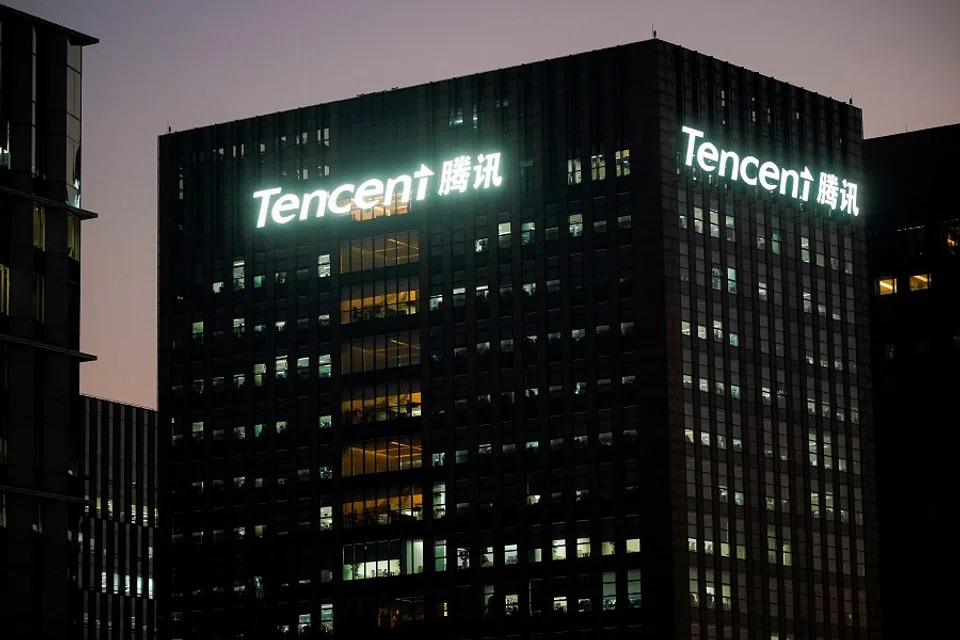China's gaming industry takes a hit amid challenging outlook
The proposal of new gaming regulations in China have sent shockwaves through the industry, with the top gaming company Tencent seeing its market value drop dramatically. Lianhe Zaobao senior correspondent Chew Boon Leong takes a look at the challenges facing the industry.

Tencent, the world's largest gaming company, saw US$32 billion wiped out from its market value in a short span of time after a series of draft restrictions for the local gaming industry was proposed in China.
Some analysts opined that Tencent's stock prices might not have bottomed out yet, and this would bring even more uncertainty to the global gaming industry, which had in recent days seen major changes. However, other analysts felt that the change in the demographic structure of the new generation meant that there would be a constant stream of new gamers, and that the long-term prospects for the gaming industry still look promising.
Sudden hit
China is the world's largest gaming market, with total actual sales revenue breaking the 300 billion RMB (US$42 billion) mark in 2023 to reach 302.96 billion RMB. However, the Chinese government announced in December 2023 draft measures to regulate online gaming - stirring up memories of the authorities' crackdown in 2021 that resulted in a major overhaul of the industry. This caused Tencent's share prices to plummet. (N.B. According to media reports, the key official behind the draft measures has since left his post, and the authorities said that they would study public feedback on the proposed measures.)
The global gaming industry had gone through a series of major changes recently, including the exit of ByteDance, Tiktok's parent company, from the paid games service market; gaming engine firm Unity Software's plan to layoff 1,800 employees; as well as Sea Group squeezing its game services Garena due to the intensifying competition in the e-commerce platform industry.
... the modern demographic shifts and cross-platform technological improvements could become engines for long-term growth of gaming consumption.

Nonetheless, Ivan Su, executive analyst at investment research and fund rating agency Morningstar, kept to a positive outlook on the long-term prospects for the global gaming industry, believing that the modern demographic shifts and cross-platform technological improvements could become engines for long-term growth of gaming consumption.
Su told Lianhe Zaobao that the modern electronic game emerged in the early 1990s, and millennials have grown up alongside these games, as opposed to the previous generation that might have some resistance against electronic games. The shift to the current demographic structure would ensure a constant stream of new gamers.
He added that the increase in cross-platform applications have also enabled gamers to switch between their phones, computers, gaming consoles and more when playing games, in turn leading to a rise in the time and resources spent on gaming.
As the Chinese government tightens its restrictions on gaming, especially for the younger generation, Tencent is bound to face increasing challenges.
Tencent to face mounting challenges
However, Kenny Wen, head of investment strategy at KGI Asia, held a more conservative take. Wen stated that currently, it would be hard to predict what restrictive measures the Chinese government would adopt, as well as what impact it would have on the gaming industry.
Meanwhile, data compiled by Bloomberg showed that investors are sharply paring their bullish positions on Tencent's stock, with three of the top five options with the biggest open interest on the stock being put options. This implies that Tencent's declines may not be over yet. As the Chinese government tightens its restrictions on gaming, especially for the younger generation, Tencent is bound to face increasing challenges.

Apart from Tencent's falling stock price, the South China Morning Post reported that ByteDance's gaming unit Nuverse is in talks with Tencent regarding the disposal of its operations and is expected to lower the valuation of its video gaming studios after spending more than US$14 million developing various titles. The move marks ByteDance's grim exit from this highly competitive industry.
Meanwhile, Unity is also seeing its largest layoff since the establishment of the company. Its stocks are at US$35.87 per share on 10 Jan, a nearly 80% dip from its record high in 2021.
... the gaming business accounts for 40% of Sea's earnings before interest, taxes, depreciation and amortisation. The company is in urgent need of new hit games to keep the gaming arm profitable, which will be challenging. - Sachin Mittal, Analyst, DBS
Low visibility
Back in Singapore, latest results released by Sea last year showed that among its three major businesses, its digital financial services and e-commerce (Shopee) arms have reported revenue growth, with the exception of its gaming arm Garena, which fell 33.7%. Sea suffered a loss of over US$140 million in the third quarter of 2023, reversing a profit of US$331 million in the second quarter.
DBS Bank analyst Sachin Mittal pointed out that regional e-commerce competition has intensified, with Shopee set to fight for a piece of the pie with TikTok, Temu and Shein. Sea's e-commerce operating expenses may increase as a result, squeezing its gaming business Garena.

He added that the gaming business accounts for 40% of Sea's earnings before interest, taxes, depreciation and amortisation. The company is in urgent need of new hit games to keep the gaming arm profitable, which will be challenging. Overall, Sea's gaming business has low visibility.
Over the past year, Sea's shares fell 30%, closing at US$38.14 on 10 January.
This article was first published in Lianhe Zaobao as "全球游戏业出现巨变 分析:长期前景仍受看好".



![[Video] George Yeo: America’s deep pain — and why China won’t colonise](https://cassette.sphdigital.com.sg/image/thinkchina/15083e45d96c12390bdea6af2daf19fd9fcd875aa44a0f92796f34e3dad561cc)
![[Big read] When the Arctic opens, what happens to Singapore?](https://cassette.sphdigital.com.sg/image/thinkchina/da65edebca34645c711c55e83e9877109b3c53847ebb1305573974651df1d13a)
